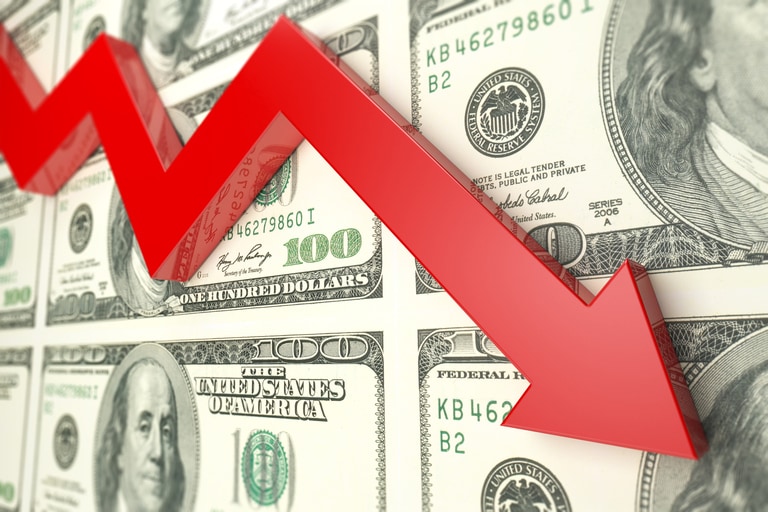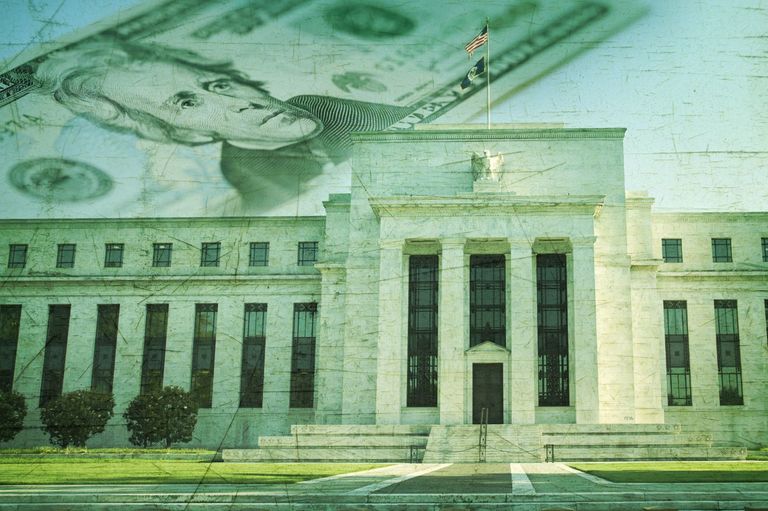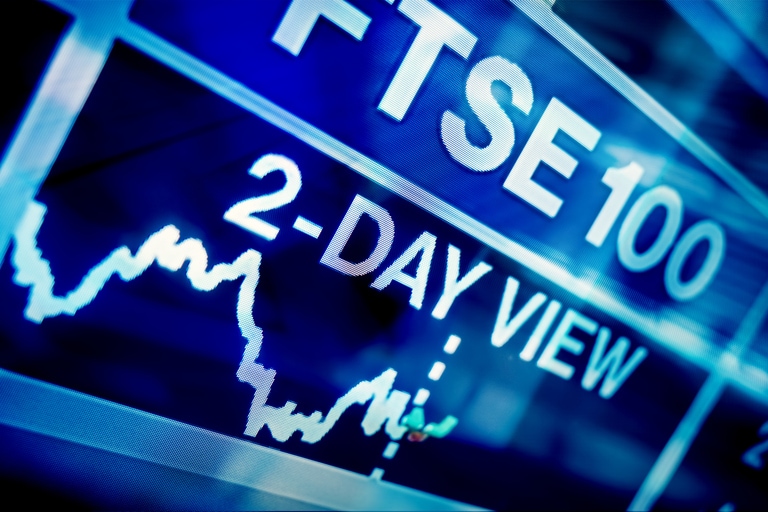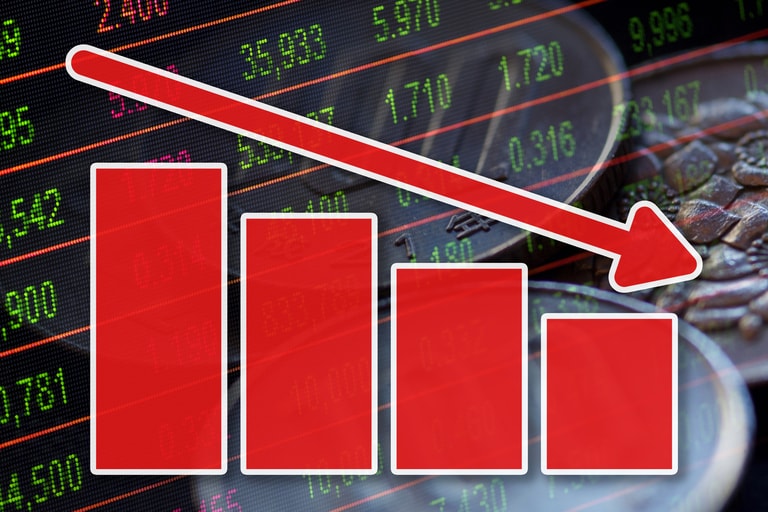US equities continued their run of recent gains yesterday, rising for the sixth day in succession and posting yet another set of record peaks, while oil prices continued their run higher, rising above $61 a barrel to fresh one-year highs.
Markets in Asia have also followed suit, with the Nikkei 225 also continuing its advance towards the key milestone which is the 30,000 level, as optimism over the next $1.9trn US stimulus deal continues to drive gains.
Bitcoin has also continued its recent record run, making new record highs above $45,000 after Elon Musk gave the cryptocurrency its biggest endorsement yet, saying that Tesla had purchased $1.5bn of the currency, while also saying that it was making plans to accept it as payment for its vehicles in the future. At this rate Tesla will be better known for making money from selling carbon credits, and crypto assets than the selling of its cars.
While markets in Asia have also continued to remain reasonably buoyant, the same can’t really be said for markets in Europe, where investor enthusiasm is much more muted, and perhaps a little more cautious, despite the DAX pushing up to new record highs yesterday, with markets here opening mixed.
The FTSE 100 is finding upside progress much more challenging, failing to get anywhere close to the highs last month when we briefly hit 6,900 before slipping back. This failure is a little perplexing given that the recent moves in commodity prices, as well as yields, are more likely to suit the likes of the FTSE 100 big caps of big oil and the banks, however concerns over the travel sector still appear to be acting as a drag.
The continued buoyancy in global equity markets in general appears to owe much to optimism over the reflation and recovery trade, where the eventual rollout of the vaccine, and gradual reopening of the wider economy will prompt a rebound in repressed demand. Concerns about inflation, while rising, and which are reflected in bond markets in the form of higher yields in the longer dates, appear to be being pushed to one side for now, however one can’t help that for all of this optimism, the real elephant in the room is what happens if oil prices continue to rise at their current rate.
The global economy, for all of this move towards a greener future, remains very much driven by fossil fuels, which means at some point this rise in prices could start to cause demand destruction if left to rise unchecked. The travel sector is one such sector that is very much demand driven, and extremely sensitive to rising fuel costs, which means that the rise in oil prices is not good news for a significant rebound here, even without the fact that 2021 is likely to be another write-off year, with most potential travellers confined to staycations.
TUI Travel’s latest Q1 numbers bear this truth out quite starkly, after turnover came in at €468.1m, well below consensus estimates of €704.1m, as the company crashed to a loss of almost €700m. By contrast Q1 revenue from last year came in at €3.85bn. In terms of forward bookings, the picture is slightly more positive with 2.8m for this summer, which marks about 56% of the levels seen in the summer of 2019. Of course, this presupposes that most people are able to still take their proposed booking as scheduled, and additional conditions for travel like vaccine passports aren’t imposed between now and the summer. It is becoming increasingly evident from the extent of these losses how important this summer season is likely to be for the travel sector as a whole, and while a successful vaccine programme is likely to boost its bookings, higher fuel costs won’t help as margins get squeezed.
One of the big winners from the pandemic has been Ocado, which has invested heavily in the past 12 months to improve its processing and order capabilities. In December the company invested $287m in the purchase of two robotics specialists in order to help streamline the picking functions in its automated fulfilment centres. Overall capex this year has doubled rising from £260.7m a year ago, to £525.6m. Today’s full-year numbers saw Ocado revenues come in at £2.19bn, slightly below expectations of £2.3bn, with the company posting a loss before tax of £44m, a significant improvement on last year’ s loss of £214.5m. On the plus side group earnings rose 68.8% to £73.1m, well above the upper expectations of £60m, however Ocado's share price has slipped back on the open, largely on the back of some profit-taking after the shares fell short of recent record highs last week.
Micro Focus preliminary set of full-year numbers have seen the company take another hit from the HPE deal as the company set aside another $2.8bn in respect of goodwill, following on from last years $922m, as management continue to restructure a business that bit off more than it could chew when it embarked on the ill-fated $8.8bn acquisition. As a result, the company slumped to a loss of almost $3bn, while the overall business saw a 10% decline in revenues, equating to an adjusted EBITDA of $1.17bn, slightly lower from a year ago but broadly at the top end of expectations.
UK housebuilders have seen a decent rebound from the shutdowns that came about from last year’s shutdowns, and while their costs have risen as a result of various safeguarding measures overall the rebound in activity has proved to be resilient. This morning’s H1 numbers from Bellway have shown revenues rise by over 12% year on year, with the completion of a record 5,656 new homes, a rise of 6.3%. Forward bookings are also reported to be strong at 5,889 homes with a value of £1.62m, sending the shares back towards the record highs of last year.
On the currencies front the pound has pushed above 1.3750, removing another obstacle to a move towards the $1.40 level, despite a disappointing BRC total retail sales number for January which saw a decline of 1.3%, the lowest since May last year, as non-essential spending was hit by the lockdown measures imposed at the beginning of the month. This really shouldn’t be too much of a surprise given recent events, and the outlook for non-essential retailers, with a strong high street presence is unlikely to improve much before Easter. On the e-commerce side online non-food sales rose 83% in January, a significant rise from last year’s 1% rise. What this survey does tell us is that there is demand there, it’s merely being suppressed with like for like sales rising 7.1%, up from 4.8% in December.
The US dollar has also continued to come under pressure, sinking back for the third day in succession in the wake of Friday’s disappointing jobs report. US markets look set for a pause after their recent run of gains with a slightly softer open later today. With little in the way of data on the docket, attention will be focussed on the latest Jolts numbers, or job openings for December, which are expected to see a fall to 6,400 from 6,527, and the lowest since June last year.
On the earnings front all eyes will be on Twitter's latest Q4 numbers. Twitter has always been the poor relation compared with the likes of Facebook, in terms of monetising its user base. In Q3 it did appear it was making progress on this front, when revealing revenues of $936m, an increase of 14% on the same period a year before, with 187m daily users, a 29% increase year on year. Compared to Q2 however it was only marginally higher, and Q4 could see this number slip back in light of recent events.
In the aftermath of events on Capitol Hill in January, and President Trump’s subsequent ban, Twitter embarked on a purge of thousands of accounts, while others may well have decided to leave of their own accord. Companies also decided to pull their advertising spend in the aftermath of the violence, which in turn could impact Twitter's Q4 numbers. The next few months are likely to be crucial ones in the lifecycle for social media companies and Facebook and Twitter in particular. Profit is expected to come in at $0.30 a share, which seems optimistic given that they came in lower than that in Q3 at $0.19 a share.
Tesla shares had a decent day yesterday after Elon Musk’s bitcoin revelation, moving closer to the recent record highs of last month of $900.
Disclaimer: CMC Markets is an execution-only service provider. The material (whether or not it states any opinions) is for general information purposes only, and does not take into account your personal circumstances or objectives. Nothing in this material is (or should be considered to be) financial, investment or other advice on which reliance should be placed. No opinion given in the material constitutes a recommendation by CMC Markets or the author that any particular investment, security, transaction or investment strategy is suitable for any specific person. The material has not been prepared in accordance with legal requirements designed to promote the independence of investment research. Although we are not specifically prevented from dealing before providing this material, we do not seek to take advantage of the material prior to its dissemination.







